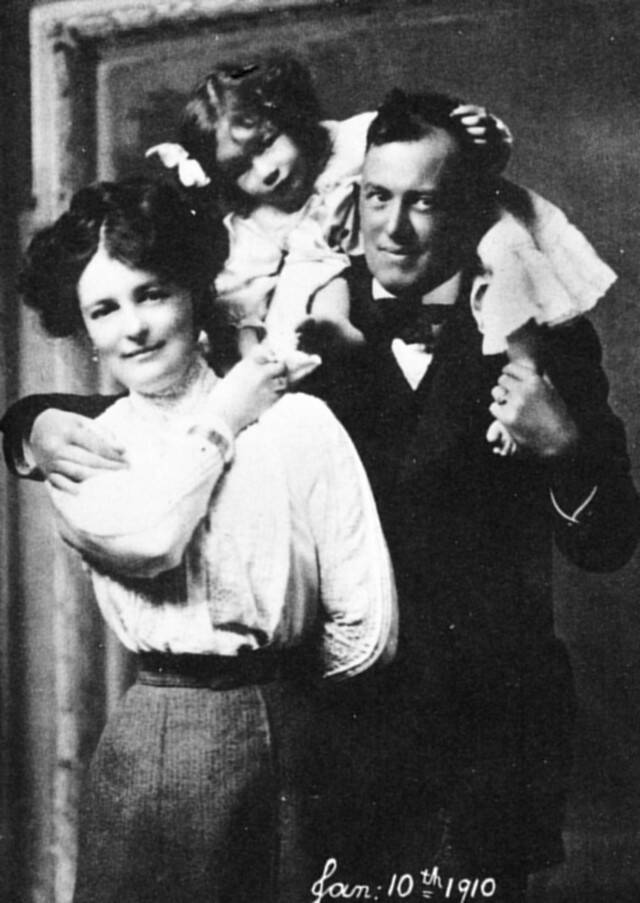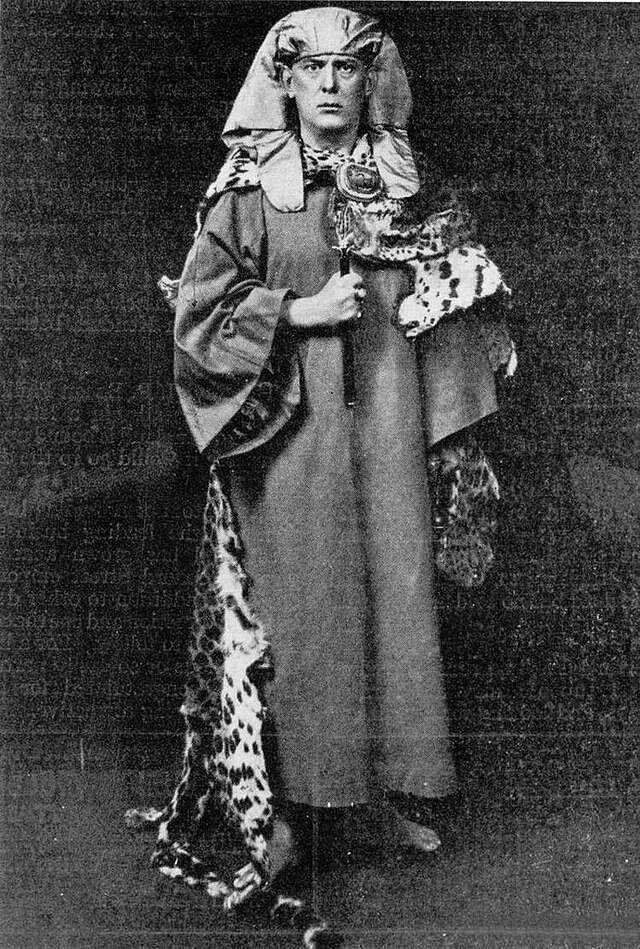Some occultists like Aleister Crowley started new religions based on mysticism, while others like Grigori Rasputin claimed to be "faith healers" and used their influence to gain power.
In the 19th century, a belief in the occult spread throughout Europe. Following the Scientific Revolution and the Age of Enlightenment, people began to question mainstream religion — and some of them turned to mysticism instead. These occultists practiced a wide variety of rituals, from basic communication with the dead to “sex magick.”

Public DomainAleister Crowley, one of Britain’s most infamous occultists, who founded the esoteric religion known as Thelema in the early 20th century.
The word “occult” is derived from the Latin term for “hidden” or “secret,” and the esotericism that gripped the world in the 1800s essentially boiled down to a belief in the existence of secret, often ancient knowledge that only a chosen few could understand. French magician Éliphas Lévi is sometimes referred to as the “founder of occultism,” as he wrote several books in the 1850s and ’60s in which he claimed that ancient spiritual wisdom could bridge the gap between science and religion.
Later occultists formed religious movements like Thelema, Theosophy, and the Church of Satan that sought to spread these ideas and initiate new followers. Spiritualism took hold in the United States thanks to mystics like the Fox sisters, and even groups like the Nazis dabbled in esotericism.
From Élphias Lévi to Anton LaVey, learn about seven of history’s most infamous occultists and their impact on magic, divination, alchemy, and more.
Aleister Crowley, The “Wickedest Man In The World”
Aleister Crowley is perhaps one of history’s most well-known occultists. Although he was born into a devout Christian family, he grew skeptical of the religion as a teenager. By his early 20s, he’d become fascinated by occultism, which was on the rise in Europe in the late 19th century.

Public DomainAleister Crowley with his wife and daughter in 1910.
In 1898, Crowley joined the Hermetic Order of the Golden Dawn, a secret society based on Rosicrucianism, which celebrated ancient wisdom passed down through the generations. Members of the order practiced “magic,” such as astral projection and alchemy.
Several years later, in 1904, Crowley visited Egypt on his honeymoon. There, he studied Islamic mysticism — and had a revelation that sparked an entire religious movement called Thelema. He claimed that the voice of a being called Aiwass came to him, and he wrote down everything that it said in what became The Book of the Law. Aiwass purportedly announced that Crowley was to be a prophet for Thelema and declared that the ultimate commandment was: “Do what thou wilt shall be the whole of the law.”

Public DomainAleister Crowley based much of Thelema on ancient Egyptian mythology.
By 1907, Crowley had founded his own order of occultists, A∴A∴, and he started writing articles about his teachings in a periodical called The Equinox. He even formed the “Abbey of Thelema” on Sicily, a commune where followers of his religion performed rituals to the Egyptian sun god Ra and experimented with “sex magick,” the idea that one could transcend reality through arousal or orgasm.
However, Crowley was deported from Italy in 1923 after the death of one of his followers brought attention to his compound and the disturbing practices taking place within. He spent the rest of his life in relative obscurity, though the infamous occultist and founder of Thelema became a popular figure after his death in 1947.





